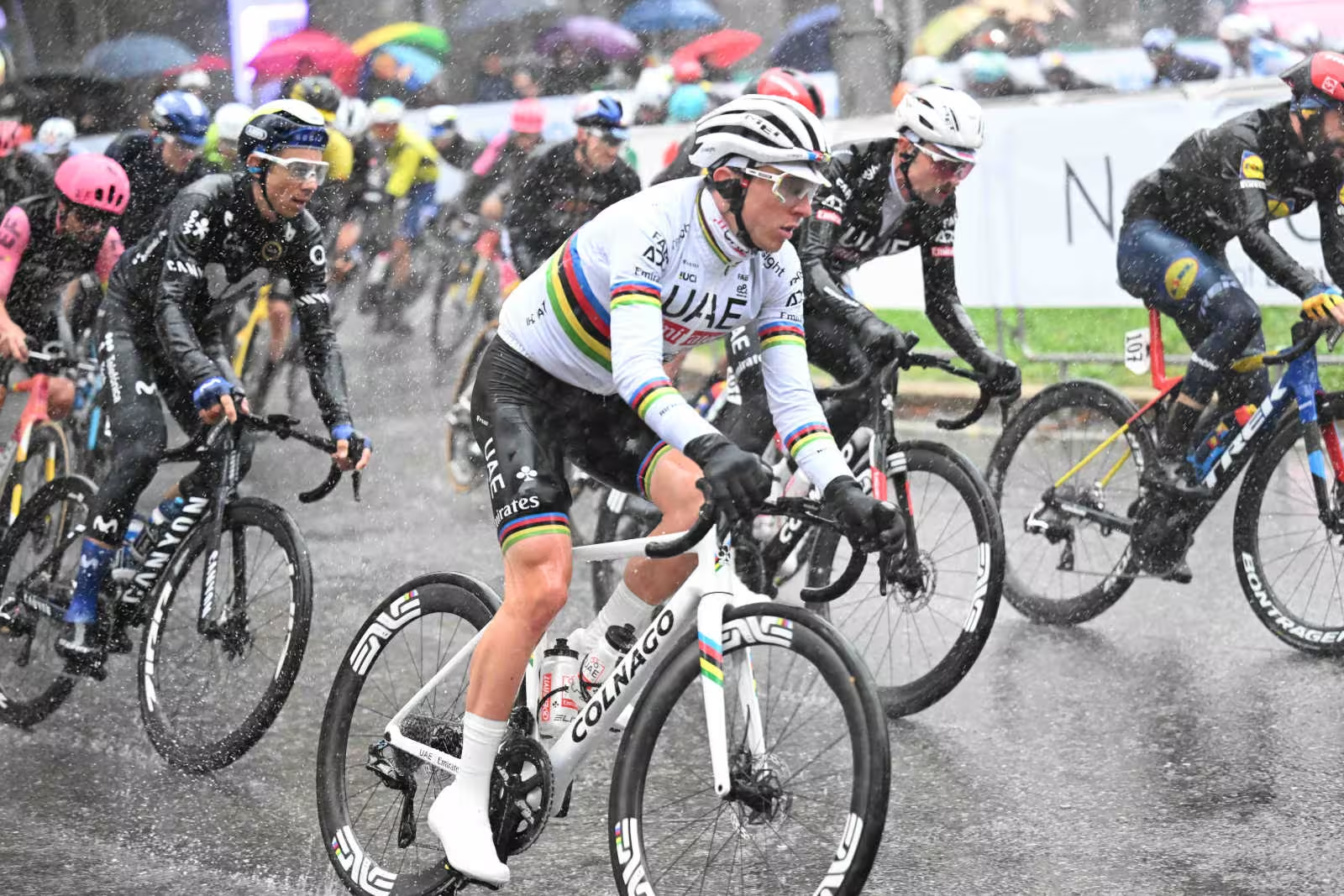With 100 kilometres still to go in the Tre Valli Varesine, the race was called off due to heavy rain and dangerously poor conditions. World champion Tadej Pogačar fully supported the decision, emphasizing that it was the right call.
“At the neutralized start, there were already seven flat tires and a few broken wheels. We tried to keep racing, but during a descent, I was in second position. That was behind my teammate Alessandro Covi, but I couldn’t even see where we were going,” Pogačar said in an interview with Cycling Pro Net. “Everyone wanted to stop. It was just a matter of waiting for crashes. The only question was: which lap? The worst crashes happen when you no longer have control of your handlebars. I know a lot of friends in the peloton who have had concussions this year. That’s something we need to be more careful about in the peloton,” he added.
Rider safety prioritized
The decision to stop came with the shadow of recent tragedies still fresh in the minds of many in the cycling world. Swiss junior Muriel Furrer’s death at a rainy junior world championship in Zurich has been a somber reminder of the dangers associated with racing in severe weather.
Race has been cancelled 🚩🚩🚩 pic.twitter.com/vjSzuQoqMI
— Red Bull – BORA – hansgrohe (@RBH_ProCycling) October 8, 2024
“We understand that organizers want to see a race, but in the end, the riders made the right decision. We’re sorry the race didn’t continue, but that’s just the way it is,” Pogačar said.
Difficult decision to cancel
“Luckily, we all stayed calm and reasonable. I saw how difficult it was for the race director. There were tears in his eyes. This race means so much to them. But if you can’t race, you can’t race. They understood that immediately. I’m really grateful to them for that.”
Rider safety has been a growing concern in recent years, with crashes becoming more frequent as the peloton gets faster and faster. The tragic death of Swiss rider Gino Mäder in 2023 has led riders and advocates to push the UCI for stronger safety measures. Meanwhile, questions remain surrounding Furrer’s death, and an ongoing investigation is examining the response time from emergency services at the race.
Click Here to Read the Full Original Article at Canadian Cycling Magazine…

